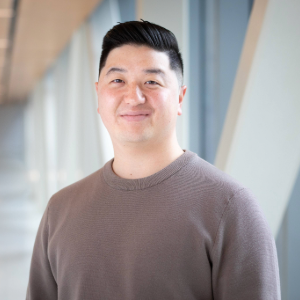
May 2024 Newsletter

May 2024 Newsletter

Student Profile
Ted Ling-Hu is a fifth-year PhD student in the Driskill Graduate Program. Hearing about the science his sister was learning in medical school inspired Ling-Hu to study science for himself.
Now in the laboratory of Judd Hultquist, PhD, assistant professor of Medicine in the Division of Infectious Diseases,Ling-Hu utilizes informatics methods to assess the effects of viral mutations on disease severity and antiviral resistance.
Where is your hometown?
Taipei, Taiwan
What sparked your interest in science or medicine?
I remember that while I was young, my sister was attending medical school and began talking about all the cool stuff she was learning in class, which made me want to eventually learn this stuff for myself. In high school this led me take a bunch of AP science classes and eventually ended up majoring in biomathematics at Rhodes College where I went for my undergraduate degree.
What are your research interests?
My research interests broadly lie in the utilization of AI in biology. I began my PhD working on developing machine learning algorithms that can more accurately predict heart failure. However, given the magnitude of the pandemic, I’ve since transitioned and have been working on improving genomic surveillance pipelines, which is the primary way to observe viral mutational profiles evolve in real time.
What are you currently working on?
My current project is working on the characterization of remdesivir driven mutations in vivo. Remdesivir was the first FDA approved antiviral that is used to treat severe COVID. Because of its wide administration, we hypothesized that this would become a selective pressure forcing the virus to adapt and develop resistance. We are currently validating this hypothesis using a patient cohort that is significantly larger than any previously published research on remdesivir-related resistance.
Please tell us about a defining moment in your education at Feinberg thus far.
In the 2022 Lewis Landsberg Research Day held at Northwestern, I was a finalist in the clinical research division. I presented my poster against multiple other finalists and ended up winning first place for the entire division. I am really proud of this achievement, and definitely something that boosted my confidence as a scientist.
What do you hope to do with your degree?
I have been involved with biotech incubators and venture capital firms during my time in grad school and have seen the translation of science into products that can advance healthcare. I hope to accelerate this process by sitting at the intersection of science and business to help bring more products to patients who need it.